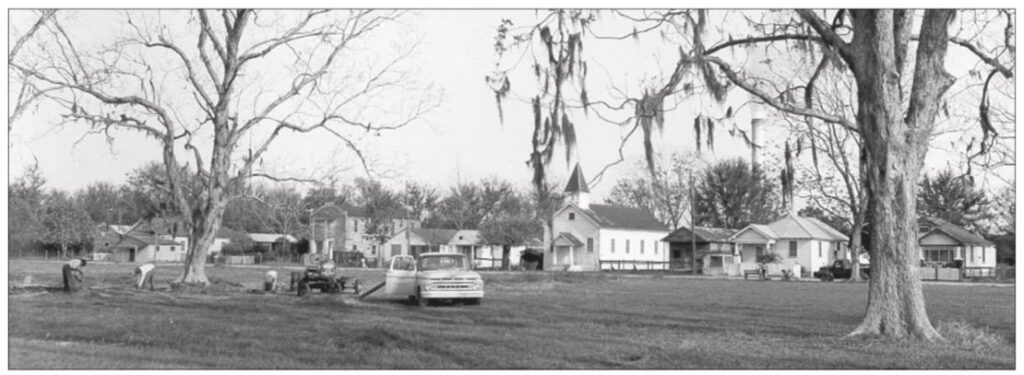
Priceless National Heritage: The Taking of Fazendeville

About This Event
GCC professor of history Alyssa Arnell presents this year’s Dovi Afesi Lecture.
In 1865, Pierre Fazende parceled off seven acres of land situated downriver of New Orleans in neighboring St. Bernard Parish. He sold plots to newly freed and other people of color. For a century, the community of Fazendeville thrived. In its heyday, Fazendeville boasted over 100 families, two grocery stores, and a school that doubled as a dance hall where Fats Dominos was known to play. “The Village,” as Fazendeville was fondly nicknamed, was a community known for its collective political and economic action. But Fazendeville was situated on a parcel of land coveted by heritage and memorialization associations for its connection to the War of 1812. In 1815, Andrew Jackson led a diverse army to victory against invading British forces that marched across this field. “The Battle of New Orleans” victory was the last engagement of the war, and the victory propelled Jackson onto the national political scene.
In 1962, Congress was persuaded to pass legislation creating a national military park in celebration of the 150th anniversary of the Battle. This law gave the Secretary of the Interior authority to demolish Fazendeville, reasoning that the military park must represent the land as it was in 1815 so “that our citizens may gain a deeper appreciation of the priceless national heritage represented by the Constitution.” The sesquicentennial celebration was a segregated event, and white visitors looked out over an empty field where a Black community once stood. Fazendeville’s razing, Arnell argues, was the result of a calculated and well-organized effort of governmental agents and a powerful local leader within the women’s heritage movement. The razing was ultimately an effort to legitimize the history of the Confederacy by connecting the Lost Cause mythology to the War of 1812 and the last battle that solidified U.S. Independence. In contextualizing Fazendeville’s removal, Arnell pays tribute to the fearless resiliency of a politically and socially organized Black community displaced at the height of the civil rights movement.
Alyssa Arnell is the chair of history at Greenfield Community College. She holds a master’s in history from Florida Gulf Coast University and a master’s in legal studies from Kaplan University. She is a current Ph.D. candidatea at the University of New Hampshire. From 2016-2017, Alyssa worked for the National Park Service in New Orleans and at the Chalmette National Park aka “The Battle of New Orleans” site where she focused on racial healing projects and community building. She also taught history at Dillard University in New Orleans from 2013-2016.
Free and open to the public.
Event Details
Date & Time: March 28 @ 6:00 pm - 8:00 pmEvent Categories: Other
Event Cost: Free
Event Website: Event Website
Event Venue
Venue Name: Greenfield Community CollegePhone: 413-775-1000
Address:
One College Drive
Greenfield, MA 01301 United States
